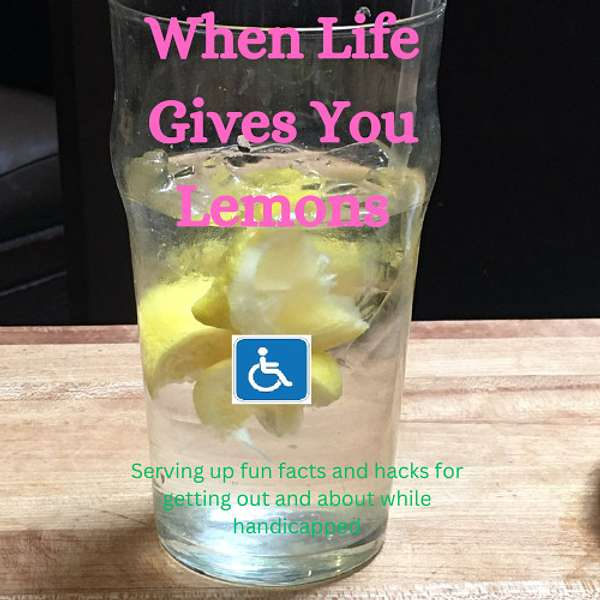
When Life Gives You Lemons
We do a bit of Research into handicapped travel issues and provide some solutions. Mobility, Hearing, Sight, Mental issues included. so far our episodes have included some information on Ataxia, Cerebral Palsy, Deafness, Dancing Sickness, Gulf War Syndrome, Long Covid and Wheelchairs. We are both Disability Advocates and realize there are too many diseases and conditions to cover and try to discuss the most common problems disabled people face and spread some awareness of disabled issues non-disabled people are unaware of.
CORRECTION
On a Previous episode I described how to enter our End Of Season contest. Step 1 click on the support our show link. Step 1 we require a one time payment (This has changed during our season) of $3. Step 3 (get you back to a one time payment) click on the $3 Subscription button. The following business day cancel the subscription (if you do it same day your bank may start thinking FRAUD. Step 4 Your done. Thanks for entering and "may the odds be forever in your favor",
When Life Gives You Lemons
Breaking Barriers: The Journey of Ms. Wheelchair Maryland
What happens when the world isn't built for your body? Carla Cobbs, crowned Ms. Wheelchair Maryland 2023, takes us on an illuminating journey through her life navigating a world designed primarily for able-bodied individuals. Born with arthrogryposis affecting mobility in her arms and legs, Carla shares candid insights about everyday challenges—from the seemingly simple task of pumping gas to entering buildings without accessible buttons.
Carla's advocacy platform, "Inclusive Education Outside the Classroom," emerges from her lived experience and observation that many accessibility issues stem not from malice but from a fundamental lack of perspective. "Light bulbs don't go off," she explains, describing how businesses often check compliance boxes without truly considering practical accessibility. Through her reign as Ms. Wheelchair Maryland, she's working to bridge this awareness gap by visiting communities across her state and amplifying transportation accessibility issues affecting wheelchair users.
The conversation reveals fascinating details about the Ms. Wheelchair pageant itself—a competition focused on advocacy rather than appearance, where participants undergo workshops, deliver timed speeches, and connect with a community many never had growing up. For Carla, who was mainstreamed in education and lacked disabled role models, this connection proved particularly meaningful. "It's almost like being a member of the royal family," she reflects. "You're always on display."
From adaptive sailing to accessible playgrounds, Carla highlights how visibility and representation matter in showing what's possible for the disability community. Her story reminds us that true inclusion requires moving beyond minimum compliance to thoughtful consideration of diverse needs. Join us for this eye-opening conversation that will change how you see the world around you. Follow Carla's journey on Facebook at Ms. Wheelchair Maryland 2025 and discover how you can support her advocacy work.
Welcome to our podcast. When Life Gives you Limits, I'm Kevin.
Palmi:And I'm Palmy. We consider ourselves disability advocates and intend to spotlight some disability issues and things we find interesting that we frequently encounter when we're out and about. Also some history on disability that we find interesting.
Kevin:Hello everybody, welcome to our podcast, Just me. Today we're going to do an interview with Ms. Wheelchair Carla. You hear both Palmi and I in the interview, so without further ado, let's get right to it. Before we really get into the questions, if you will tell us a little bit about yourself, who you are, what causes you are, if I remember from pagents causes behind them. So what is your cause, et cetera.
Palmi:Your diagnosis, my diagnosis sure.
Carla:Yeah, okay, so you're asking for my diagnosis and my platform for Ms Wheelchair.
Palmi:Yes, ms.
Carla:Wheelchair Miller, right, sure, sure I have. Or I was born with a congenital condition called arthrogryposis, and I can spell it if you need me to arthrogryposis and that affects my, the mobility in my arms and legs, right so, and my legs are affected to the point where the I can't stand on them because I can't bear the weight on on my lower body or legs right, uh, independently, uh, without, let's say, braces or a walker. That's why I used a chair chair as long as I could, could remember, and yeah, so that's my diagnosis and why I'm in a, I want to say a power wheelchair and I but I've still, you know, lived life and have tried them and definitely made the best of it. And that living, especially being born with a condition and not really having, let's say, a sense of like, able-bodied, then acquiring my disability, having this perspective of disability, if you will, on my life, really, has that really contributed to my platform? Inclusive education outside of the classroom? I've. My family was wonderful, so great, my parents and family being supportive of me and know, making sure I felt included, especially in school, so that was a beautiful thing.
Carla:And then, uh, or even as a child, but going into adulthood, encountering certain instances of inaccessibility is, um. Well, let me give an example. For instance, disabled parking spaces or those that violate those parking space, let's say laws or rules, without having a plate or placard, or even entrance into a building, especially as an adult, you know without the push button, which I understand is not required by law. But still, how how does one with limited upper body function? How is one supposed to get into a door independently, right, what if I want to go somewhere alone or someone is not able to accompany you? What am I supposed to do? So not just those instances, instances and so so many more have led to my platform about, and let me back up a little bit and what can the community do to help with these circumstances?
Carla:Another example I guess a better example I'll give is pumping gas. Again, if I'm saying I'm affected in my upper body because of mobility, pumping gas independently or as independently as I could be, how am I supposed to do that? So, when I took driver's ed but it was adaptive and it was suggested to ask someone in the store to help pump with gas, so that educational pieces come into play on my end, where I've learned it's better to go somewhere with, let's say a 24 hour store or a gas station, let's say with more employees, that would have the staff to assist. Then we could go. You know, know, if you go into a store with, or gas station with, one employee, then it's like then how, how, from logistically, how are they able to shut everything down? Yeah, it's not realistic, it's not yeah right, it's not.
Carla:It's not a, maybe a. I I don't want to do this like oh I, you know, not like I can't or won't, it's just from a business standpoint and a safety standpoint. So I understand it's kind of that educational component that I've learned. That's a great platform, I think. Yeah, it's kind of broad.
Palmi:And I think it's something that not an able person does not even comprehend.
Carla:It's something that not an able person does not even comprehend, and that's something I started out my speech at nationals with is. You know, I've often gotten, when talking to people that work in the employees of a store or business, or leaders of a business or store organization, it's almost like certain boxes are checked for compliance, perspective, ada compliance but it's never, it's rarely, the situation where, well, I've never had to think about this. Right, no light bulbs go off, yeah, right, right, and it's through no one's fault. It's just, you know, we don't often think about other people, someone else's view lens, especially when it comes to those with a disability.
Palmi:Until you're in their shoes.
Kevin:right, those with a disability, Right until you're in their shoes, right, uh-huh Well, one thing that you just talked about that blew my mind was you took driver's ed after you were in the wheelchair and I'm thinking I can't even fathom getting hand controls in the car and such. Well, if it's the only thing you've heard, the way you've heard, or even like in purchasing, this is how you get gas. When you're disabled, you go inside and ask for help.
Palmi:No, you don't go inside. Usually you ask there's a button, isn't there.
Kevin:There's probably a button now, but I don't think there probably was. When you're a school, oh, probably not yes, ma'am, there some.
Carla:So some places do have buttons, some places do not. But again, logistically, um, I can speak from my experience again as someone that is affected in their upper body, and I'll say fun-sized, I'm about five foot tall but my chair does elevate. But I guess I paint a picture of that, um, that realism, if you will, of that scenario. One gas station I went to had the trash can and like the button was on, was on the, let's say, like a little wall that was holding the structure up, but they had a trash can, like sitting like at this wall. Then the button was on over top of the trash can.
Carla:Oh, my goodness, one another gas station the button was. I don't think it was working. Again, it's like it depends on. Sometimes it'll depend on who answers the phone and if they have the staff to answer Right Phone or call or wherever this thing leads to.
Palmi:Kevin's run into places where, just to use the bathroom, they've stacked soda cans or boxes of soda in the area that it's not wide enough for a chair to go through. So you know, it's just things that able-bodied people don't think about when they're doing silly things.
Carla:You know, and again, two, so two scenarios that was that were presented to me is, in terms of those scenarios by a manager, is, uh well, the bathroom incident. I've definitely been there, done that and yeah, oh well, um, sometimes it's just, sometimes it may be very temporary, but it's still like and my counter to that is, well, that's almost like a violator of a disabled parking space. It's like, you know, okay, even if you're going to be a second, it's like that's a second taking time away from someone that needs to get in that space Immediately. Yeah, so, or it's, it may have, let's say, passed code upon opening, right, but then they don't follow the rules later on.
Carla:Yeah, my city or my state is to see what I can do on my end to get on those boards, or even for the licensing, because those licenses have to be renewed. From my understanding and you know who, are we doing audits? Are we? Is anybody double checking these things? And from again, where I am, it's the answer is kind of a no. It's more of like, maybe paying, paying a fee, or I'm not the again, I'm not the expert, but again, I definitely feel like that could be a part of that collaboration and community, if you will, if that's a part of the compliance and renewal, if you will. These businesses knew that they had to be up to code, but private businesses and that's a whole other thing. Private businesses are not as protected under the ADA as public businesses, and it's like. But to live life you have to interact with both right yeah, well, this is that's.
Palmi:That's really it. Can you tell me how did you get involved in the wheelchair pageant competition? I didn't even know there was such a thing. Does Missouri have one? Kevin, did you look?
Kevin:I have not been able to answer that question.
Palmi:Okay, so how'd you get involved, sure.
Carla:I actually heard about this during COVID, when this whole social media boom happened. But I actually heard about this from a motivational speaker that is a wheelchair user and she was sort of sharing how she got her start and you know, she is one of the more, let's say, popular influencers, if you will. And how she got her start was through Miss, by being Miss Wheelchair America. Okay, I have met.
Palmi:I have never. Do you mind sharing the name?
Carla:Sure, allie Ingersoll, a-l-i Okay and we'll start following her then. Okay, yeah, okay, and we'll start following her then we okay, yeah, but I've met, you know, so many people um in this journey and how long ago?
Palmi:I mean, do you do? Is it like a uh week-long thing or uh how? How's what? What is all involved in it?
Carla:I do know so it is. You compete on your state level, and then there's a national competition as well, at least from from my state, and I do want to say that our leadership may change so, and rules can change this life, you know. Sure, things change, but the competition was two days and we stayed like a weekend. We were in a hotel, oh, wow and yeah.
Carla:What's all involved, sure, a day of like, I'm going to say, a workshop finding out, you know what is required, and finding, or you know, getting that information on how important this is, what this means and where you can go from here.
Carla:We met former title holders as well, and that was amazing title holders as well, and that was amazing, again, from my perspective. I because I just want to back up and say that I was taught in mainstream education, not special education. So, and I am the only member of my family with a disability that impairs, let's say, my mobility. So it's not like I grew up with a bunch of role models that were in a wheelchair, either in my family or my, let's say, social circle as a child, and then I went to college and there, from my understanding, there really were no groups or anything like that. So I just I've never been around many disabled individuals or individuals with disabilities. I'm sorry, let me say, let me say it that way, I've never been around many individuals with disabilities that you can connect with, talk with. And an example I love to give is you know, when someone gets a lifelong diagnosis many adults, let's say cancer, let's say that example, for instance the first thing they get are support groups.
Carla:And from my understanding that's been going on for a long time. But and my parents were even offered support groups but it was never like, oh, let's put this child and let's get this child to get some friends or something that you know, people that can mentor her or just like play dates or anything like that, and that's a whole other story I could go into, but the lack thereof it's just, it's very different. It can be very isolating. I often kind of give an example of this is almost like when being born with your disability. It's almost like being a member of the royal family you're always on display or a child actor I think ariana grande talked about that is like a real push to get those kids in therapy, like it's such a different world. If that makes sense. It is the mental health push Go ahead.
Kevin:I said it does make sense. I'm sorry.
Carla:Sure, but things are so much better, so much better nowadays. There's always room for improvement. Nowadays, there's always room for improvement. But I know that from at least my condition. There are groups for little ones and teens and adults and there are those groups out there and I didn't know this at the time. But I'll say I've learned recently that even the united spinal association so I uh is has membership and is geared. Their mission is for those that you know use a, a wheelchair with limited mobility, not not just spinal cord uh injury survivors. Right, I'm trying to use my words very carefully. I want to be inclusive, politically correct and sensitive to the individuals in this community, which is kind of new, yeah that's also a topic because, for example, I'm old topic.
Kevin:Because, for example, I'm old and it doesn't really matter if I say what's politically correct or not. People just assume that's a word I grew up with because I'm old.
Carla:Things just like anything, especially when it comes to a culture. But language changes and I'm appreciative that we're. We know these conversations are happening and people are having to really think about the power behind words, because there's so much, so much power behind the words, behind what we say and what we mean Right.
Palmi:Yeah, can I always get better.
Carla:I'm sorry. I'm sorry, I don't think I answered. Oh my god, I'm so sorry. Briefly, so that that's day number one. It gives us a lot of information, uh, meeting new people and um. And then then day two is no and, and they weigh in. One includes some speeches, and then day two is family friends coming, you give another brief speech and then that's crowning night. It's for Maryland, my state. Day two so yeah, and it is a fundraiser as well, both state and national competition. It really is a fundraiser, but it is what it is now you said it was a fundraiser.
Palmi:Did you have it? Did you uh support a particular charity?
Carla:oh, so I mean we we're trying to raise funds. Oh, I see I so yeah. Um, I see, I see, yeah, and once I won the state title then I did have an organization that sponsored me to for some of the fees to get to nationals.
Palmi:OK.
Carla:And what is that?
Palmi:charity.
Carla:It's. It's a nonprofit called the League for People with Disabilities. It's a nonprofit called the League for People with Disabilities.
Palmi:Okay, and is it a state level or is it national?
Carla:It is state at this time oh, okay, very nice. Yes, yes, so appreciative, especially in this climate where I got a lot of no's. A lot of companies are, you know, really having to downsize, especially in this political climate. So I am very much appreciative and, you know, to my gracious again, friends and family as well. But to get to the national competition, and that is a week long, like Monday through Saturday, and it's workshops, sort of introductions, workshops throughout the week, meeting former title holders again the current Ms Wheelchair America, and we have dinner together, which, I do want to say, knowing one's place setting and formal dining is very helpful because it is presented in that way. You have to know how to comport oneself, you never, know.
Carla:I know they do the role on Capitolitol hill. Every year mr wheelchair america is invited, so it definitely is formal dining involved. You never know where you're going to be or who you're going to be meeting or eating with, so right, right, where's the?
Carla:nationals held. So for this year it was held in grand rapids, michigan, and it will be held in in that same place next year. Oh, I'm from michigan, michigan, oh, okay, um, yep, I I yeah. Yeah, I wish we could have seen more of it, but oh, we took, uh, they. We had a little trip, two trips actually one to the major sponsor, mary Free Bed. Okay, again, it's Grand Rapids Rehab Hospital. We saw what they do some amazing work, rehab, physical therapy, aqua therapy, sport therapy, different kinds of chairs, wow, so, so, so, very much. Such a gracious sponsor and so much that they can do and met so few patients.
Carla:And another day we went to I believe it was called the Mayor Garden. It's a beautiful garden with botanicals. We did a little accessible treasure hunt, oh wow, which is, you know, we had to take pictures of some certain things throughout the garden. So a lot of work goes into this planning and organizing. So thankful to the board for all that they've done as well. But yeah, it was beautiful. Just, the whole experience was adaptable. But I want to fast forward to the speech night and crowning night, speech night Friday. And that's where we give speeches. They are timed and recorded, live streamed. Sorry, recorded and live streamed. It's a lot. And then crowning night we the top five is a given, just kind of like Miss America. They get questions and then crowned and the board also has their own boards that they give out and a couple more speeches from different organizers, members of the community and organizers. So it's a lot and it's on par with also Miss America, the same thing, 70.
Carla:So, they kept us very busy. When people allude to that being a vacation, I'm like if you only knew.
Palmi:Not really, not really at all well, it sounds like you and that was already held. The nationals were already held.
Carla:Yes, yes, ma'am, it was the 17th through August, 17th through the 23rd. Okay.
Palmi:And who was the national winner?
Carla:Miss New York, new York. My first name is Latavia. I will not try to pronounce her name because I will butcher it. I know you can do that. Yeah, beautiful, beautiful girl with a great platform. Pronounce her name because I will butcher it. I know you can do the best. Beautiful, beautiful girl with a great platform and very, very much well-deserved. I'd say.
Carla:I was 19 and I made top 19, which is good enough for me and you know again, I took so much gain, sorry, gained so much from this experience. I won is a better word. I won so much.
Palmi:And you'll reign as Miss Marilyn for a year. Is that what your reign is?
Carla:Yes, ma'am, everybody has, uh, every title holder has a reign of one year. Okay, so mine ends. I was crowned in March. Okay, sure, so it will be over March 26th, but we are always looking for hopefuls.
Palmi:And then, what is your duties during the year of your reign?
Carla:Do you have? Sure, yes, yes. So we have to attend at least one abilities expo, and there's many throughout the year, and we're supposed to do or attend two events per month. Wow, and we're also supposed to go to every county. Again, if you're representing a state and I appreciate this it's difficult, it's not very easy on the gas or wallet, but getting to interact with your different members of communities in all parts of the state, because there's people with disabilities in all parts of the state, because there's people with disabilities in all parts of the state.
Palmi:Right, letting them know what your platform is and trying to get help.
Carla:And also trying to see how I can use my platform to help promote causes. I know right now in Baltimore, maryland, there's an issue going on with the transportation system, the paratransportation system. So I'm trying to uplift and encourage the city to, you know, pull themselves together and work this out and see what we can do to include everybody Right and get this going. It's apparently this electronic system is inoperable, so they ride really can't be made or scheduled and it's it's a whole thing. So again, I'm trying to you know, again, spread this awareness. How many people know about it? A lot of people don't want to talk about certain things, right, right. So spread that awareness and spread this.
Carla:Also, the stories, I mean the stories of some of the people I've met. I would, I want to do that more. Right, that's good for you. Yeah, I went sailing last week. Oh, wow, this past saturday. Yeah, I didn't plan it, I thought it would just be a meet and greet, shaking hands, kissing babies type of situation, but I went out on a sailboat and met the wife of one of the sailors who had already started sailing before I did, and she was saying how this, this sailor in particular, had a certain condition that was more progressive.
Palmi:And he's disabled.
Carla:Yes, yes, ma'am has a progressive condition and, yeah, was used to sail and never thought he could, but stumbled onto this organization and this is one of the few times of his life where he can feel like he used to feel right, yeah, that's amazing. Yeah, definitely, that's the stuff we got to promote yeah, absolutely 100, you know, in this organization called the downtown sailing center, and that's in baltimore, maryland it is in Baltimore, Maryland. Yes, they're looking for funds. They're having a regatta which I will be attending on the 20th. Very nice, yeah, yeah.
Palmi:We just recently found out that some of the national parks provide ATV vehicles for the disabled, atv vehicles for the disabled. There's one in Nashville or in Tennessee that we're looking forward to going, where the disabled can get on these ATVs and access areas that they couldn't otherwise access. So we like find out that kind of thing too. Oh, that's awesome.
Carla:Is it that a track chair?
Palmi:Is that what it is, Kev.
Kevin:It is. It's the one park. We investigated it. Yes, it was.
Palmi:And they're trying to roll it out nationwide. Right now it's just a few national parks right now, but every park we go to we try to see if we can get Kevin to get one of them so he can go where where.
Carla:That's awesome. I love that.
Palmi:You know how hard it is to get to places that is not accessible.
Carla:you know Especially on a beach, but also a park as well, yeah, beach. I know Maryland is trying trying to. You know has a few inclusive parks and it's such a beautiful thing. I would love more pictures and that's something I'm trying to promote as well in terms of my platform just how visual we need to be right, especially the wheelchair, using community um because you may not be able to do the activities, but you sure could take pictures and enjoy the scenery and stuff like that.
Carla:Right what the space looks like, or right, uh, the pathways, how paved they are, or whatever right uh, I know maryland right now is trying to uh work to get more inclusive playgrounds and I love that.
Palmi:Oh yeah, we just got one in our area, an inclusive playground.
Carla:Exactly what that means. You know what that could mean for children with disabilities, especially the wheelchair user, and I'm using a population. I want to be specific and sort of separate them. I know we shouldn't separate, but it really and truly is a different world. Being a wheelchair user, the space that's needed for us and the accommodations, if you will, is very different than the ambulatory community, right. But for children with disabilities and also parents and guardians with disabilities, right. What do we? How do we facilitate play, which is essential to childhood?
Palmi:learning and encourages.
Carla:I love that. I love it.
Palmi:Well, thank you for taking the time to talk with us today. How can our readers get our listeners get in touch with you if they have any further questions or would like to call for support.
Carla:Sure, and I have a GoFundMe as well. Okay, if there's anyone that would love to support me in that way as well.
Palmi:You can include that in the information on this podcast, but go ahead and tell us what it is.
Carla:Of course. Well, I have a Facebook page and I actually typed it and put it in a message, but it's Ms, ms, period wheelchair Maryland 2025. Wheelchair Maryland 2025. And Maryland is the state the name spelled out. Okay, you need me to spell it.
Palmi:No, that's fine, Okay.
Carla:Okay, all right, yes ma's fine, okay, okay, all right. Yes, ma'am, that's my Facebook page.
Palmi:Okay, well, kevin will put that information in the podcast information and again, we thank you for spending this time with us and congratulations.
Carla:Thank you, thank you so much and thank you for having me on this program and podcast. I appreciate y'all so much. You're welcome anytime, carla, what was your last name? Cobbs C-O-B. Like boy B. Like boy S, like Sunday Cobbs.
Palmi:Okay, got it All.
Kevin:Right, like I said, told you, Kevin will edit it all out and then he will send you a copy. Gee, that was great. Thanks, Ms Wheelchair Mill. So that was it for this episode. Do join us next time on, when Life Gives you Lemons. Till next episode, take those lemons and make your own lemonade.
Podcasts we love
Check out these other fine podcasts recommended by us, not an algorithm.

When Life Gives You Lemons
Kevin & Palmi Henry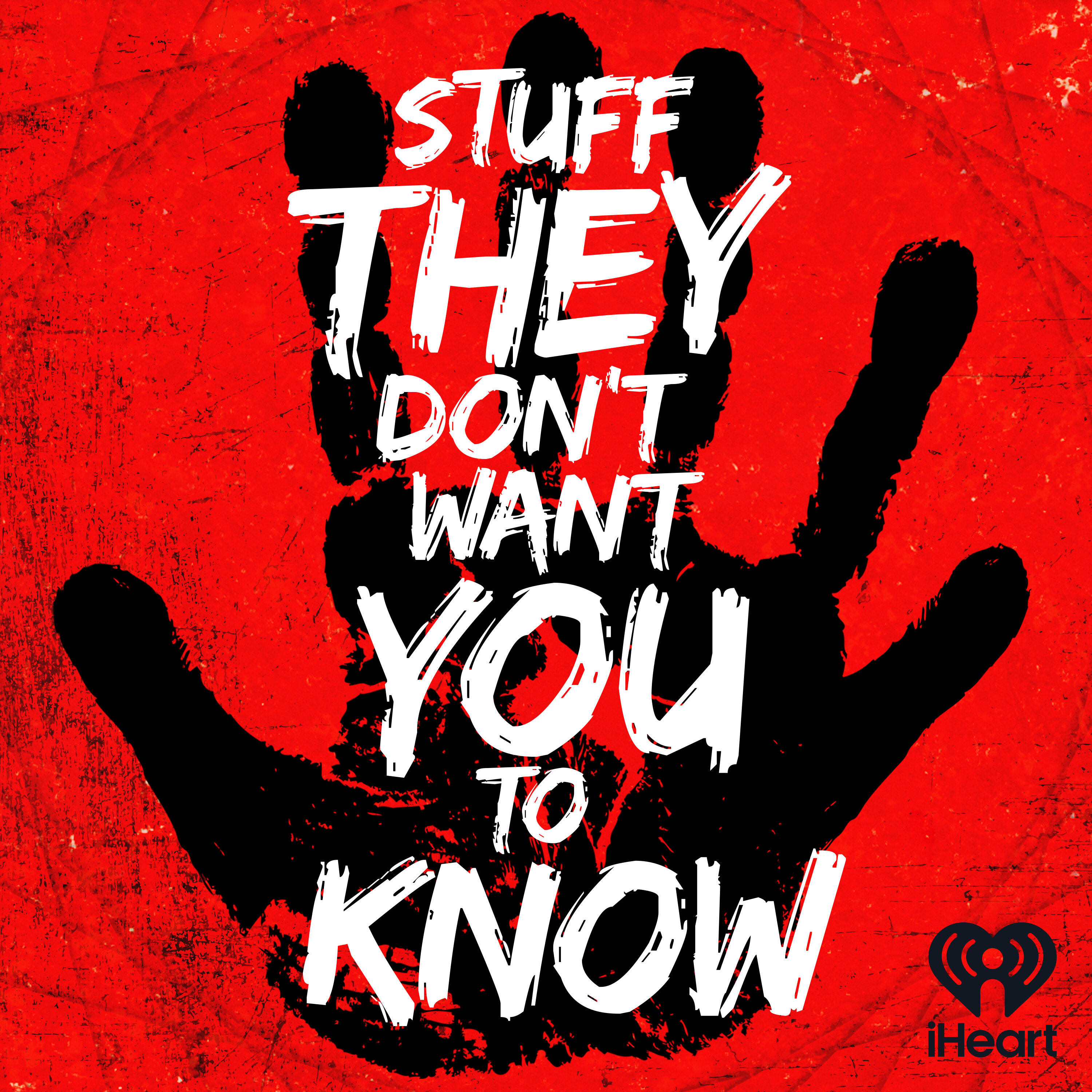
Stuff They Don't Want You To Know
iHeartPodcasts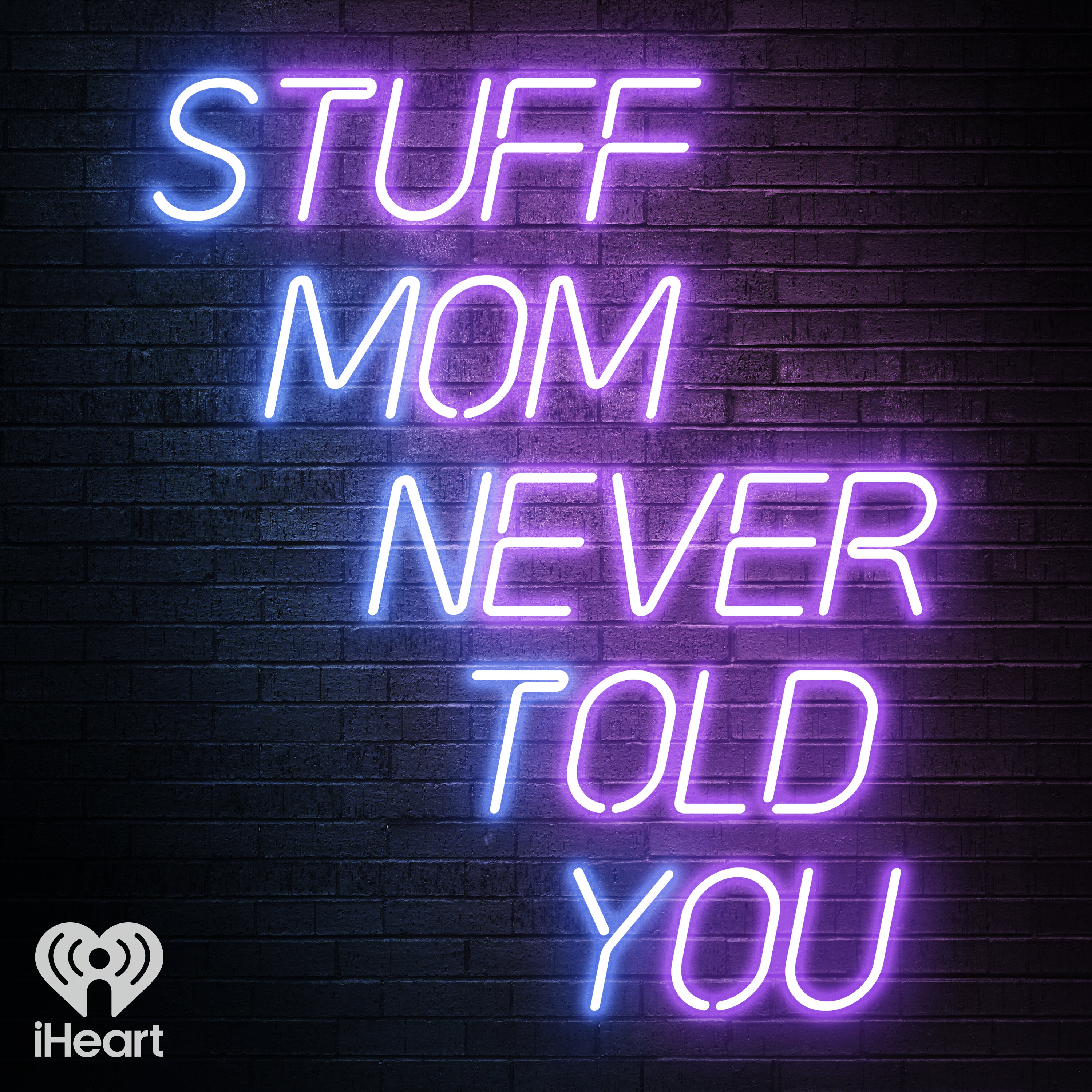
Stuff Mom Never Told You
iHeartPodcasts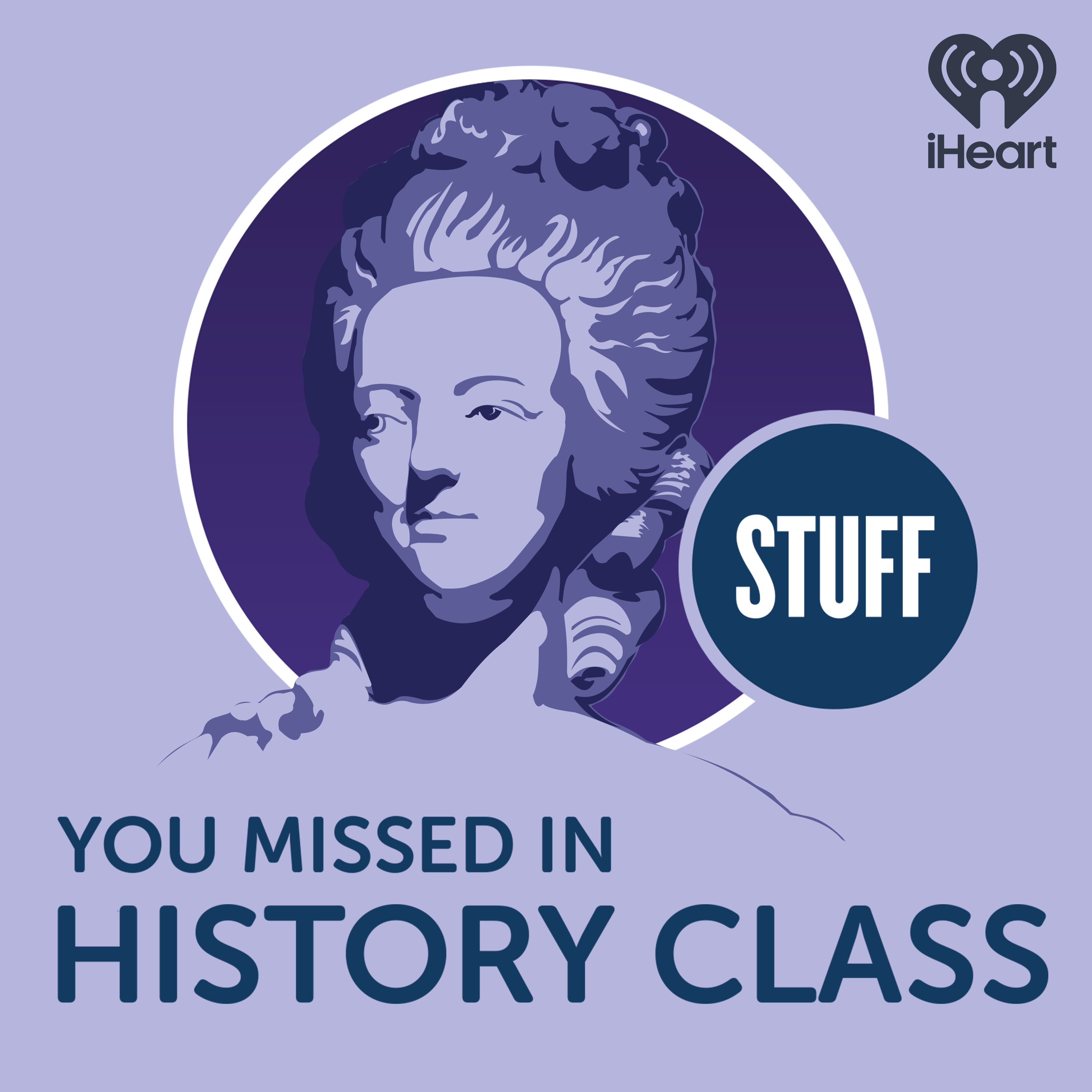
Stuff You Missed in History Class
iHeartPodcasts
Planet Money
NPR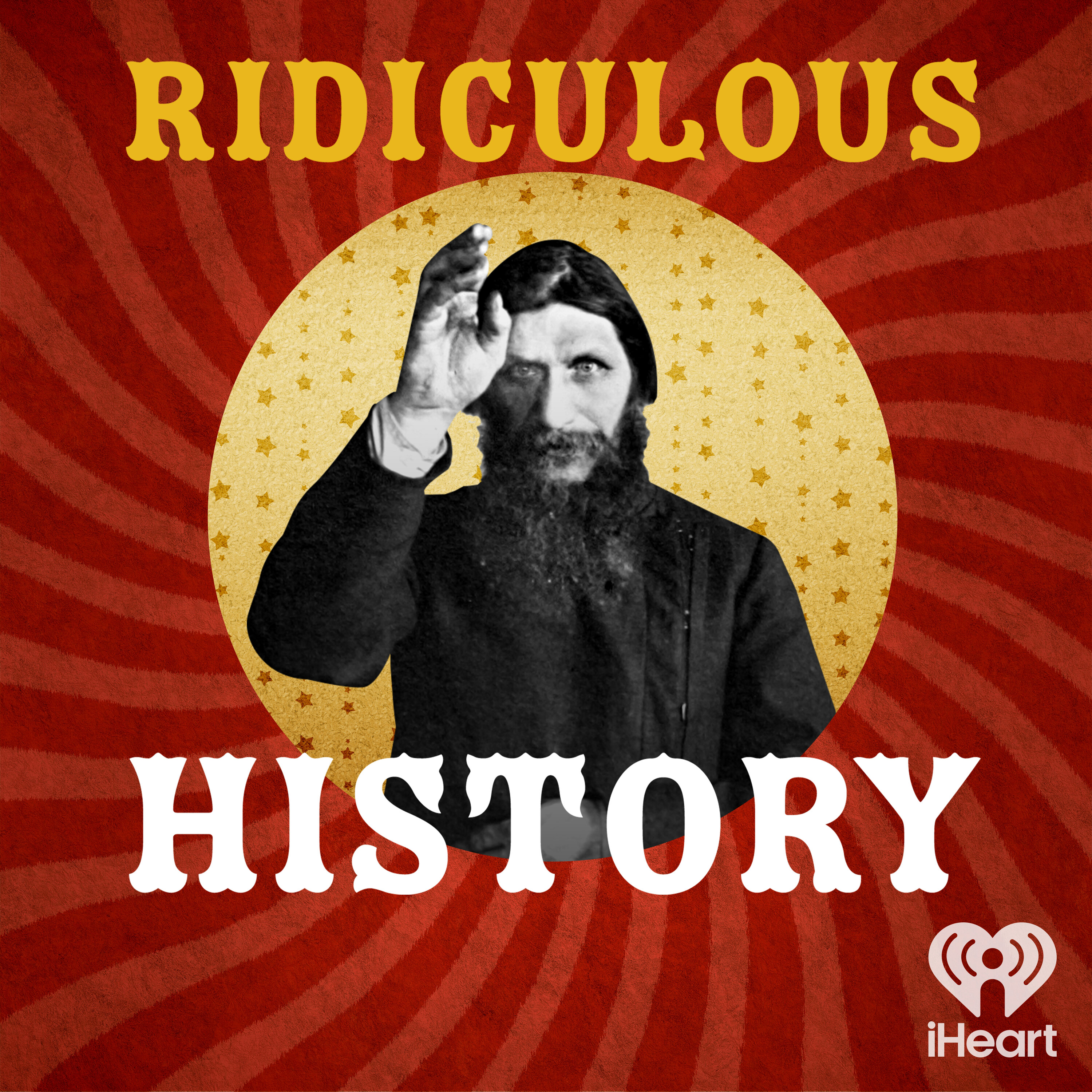
Ridiculous History
iHeartPodcasts
The Way I Heard It with Mike Rowe
The Way I Heard It with Mike Rowe




